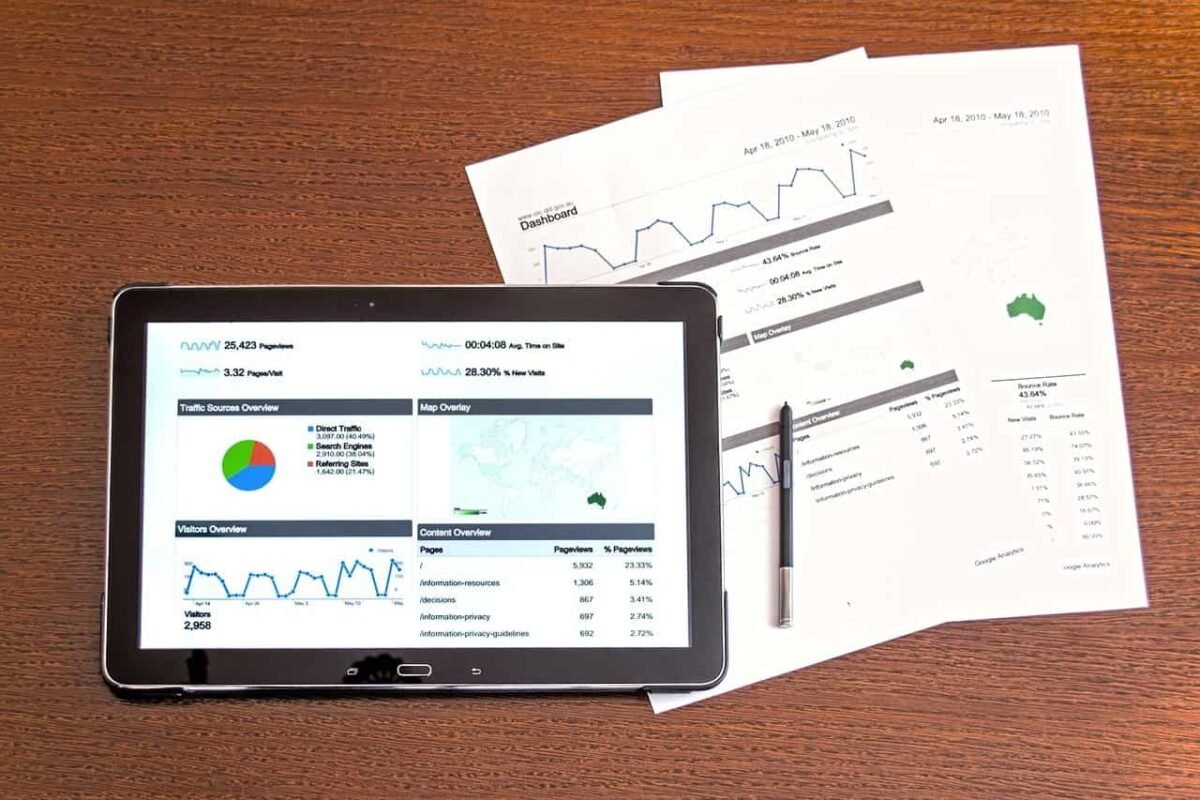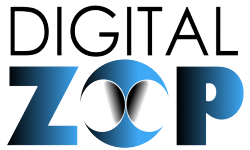What is digital marketing?
Digital marketing is the act of promoting and selling products and services using online marketing tactics such as social media marketing, search engine marketing, and email marketing.
Digital marketing is just marketing messages in front of your best leads and customers. The rule in digital marketing is to make the right offer at the right time and place. Nowadays customers are online, spend time on social media, staying up to date on news and blog websites, and searching online whenever they need it.

Digital marketing puts you in the same channels so your best prospects can see you, learn more about you, and even ask questions to learn more about you and your product or service. If you are new to digital marketing, mastering all of the online marketing tactics used in digital marketing can be overwhelming.
We get it… and yes, there are several tactics that you need to learn to build a foundation for your business together – attract prospects, cultivate relationships, and make offers that your audience will appreciate and respond to. Let’s take a closer look at how this happens.
How does digital marketing work?
Digital marketing is a means of achieving business goals using digital platforms by promoting the company’s products or services. Some of the most popular digital marketing strategies are Search Engine Optimization (SEO) Pay-Per-Click (PPC) for Advertising)…
What are some examples of digital marketing?
Examples of digital marketing include:
- Search Engine Marketing (SEM)
- Email Marketing.
- Marketing Automation.
- Digital Advertising.
- Content Marketing.
- Social Media Marketing (SMM)
- Search Engine Optimisation (SEO)
10 key benefits of digital marketing:
- Easy promotion with the targeted audience
- Rapid business growth
- Cost-effective
- More business-oriented compared to traditional marketing
- Target specific location
- Better control over on user activities
- Retargeting
- Improved conversion rates
- Huge return on investment:
- Better engagement
1. Easy promotion with the targeted audience
Digital advertising uses social media, phones, and other electronic devices to promote or sponsor products or services.
Sometimes these ads will show up when you are looking for new topics. They are (sometimes) characterized by small rectangles labeled “advertisements.” This is part of the overall digital marketing plan.
Defining audience targeting is exactly what you expect-the practice is to use data to segment consumers by demographic or interest to find the Holy Grail-to find the right people on the right devices at the right time.
You are more likely to attract consumers interested in your products or services through relevant news. It can also reduce the interest in wasting your advertising spending and help potential customers through well-known channels.
2. Rapid business growth through digital marketing
Digital marketing has continuously provided targeted traffic from conversion to potential customers and sales staff. Digital marketing can help your business adopt various technologies and strategies, which can not only bring more traffic to your business but also attract and convert more high-quality traffic of visitors.
PPC, or pay-per-click advertising, is one of the best ways for your business to increase website traffic and expand your customer base. This means you can determine how much you want to pay for your PPC campaign and which keywords you want to target your ads to. Then sit down and see the results.
3. Cost-effective digital marketing approach
Digital marketing is good for companies because you can constantly evaluate how and how it works.
Measuring the return on investment of your campaign can help you redefine your strategy and allocate resources to the right projects.
4. Digital Marketing is more business-oriented compare to traditional marketing
With digital marketing, you can reach a large audience in a profitable and measurable way. Compared with traditional marketing methods, you can save money and attract more customers. Know your audience and get to know you personally. This can help build brand loyalty.
7 advantages of digital marketing over traditional marketing.
- Low Cost: The cost of marketing and advertising is one of the biggest financial burdens businesses face.
- High ROI: Nothing is more important to a company than ROI.
- Easy to measure:
- Easy to measure Customize:
- Branding:
- Easy to share:
- Precise targeting:
5. Target specific location
Geographic targeting (also known as geographic targeting advertising) is a type of advertising that uses location data to reach consumers with messages that match their location and behavior. This ad technology displays content based on an automated or assumed knowledge of the location of consumers.
The easiest way to target a specific geographic area is to simply set up a Facebook ad as you normally would. When you set up the target audience and reach the map, press “Release Pin” and place the pointer in the center of your desired target area.
6. Better control over user activities
The purpose of monitoring user activity is to protect information while ensuring availability and compliance with data protection regulations.
The UAM goes beyond simply monitoring network activity, but it can monitor all types of user activity, including all systems, data, applications, and network actions that users perform, such as: For example, their web browsing activity, when users access sensitive or unauthorized files, and so on.
7. Retargeting
Retargeting can be a great way to increase brand awareness in the digital marketplace and keep your business at the forefront with consumers. It allows you to focus your ad spend on customers you know already have a specific interest. This means a much better ROI.
Retargeted campaigns remind your website visitors of your products and services after they leave your website without purchasing a product. After visiting certain pages, you can redirect them and show them relevant visual or text ads when they visit other websites.
8. Improve conversion rates
A good conversion rate exceeds 10%, and some companies have an average conversion rate of 11.45%. A good conversion rate makes your business one of the top 10% of advertisers in the world, which is 2 to 5 times the average conversion rate.
9. Huge return on investment
The return on investment of digital marketing is a measure of the profit or loss in digital marketing activities based on the investment amount.
This key figure shows you whether the marketing campaign is worth the money.
Email marketing is known for its digital marketing channels with the highest ROI. Email is an effective way to connect with customers, create a follower list, attract repeat customers and build brand loyalty.
10. Better engagement
What is audience engagement?
What is audience engagement? (Source) Audience engagement is a general term that indicates how interested the target audience is in your content. How do you actively “participate” in your content (by reading, viewing, commenting, etc.)
Types of digital marketing:

- SEM (Search Engine Marketing)
- SEO (Search Engine Optimisation)
- PPC (Pay-per-click)
- SMM (Social Media Marketing)
- Content Marketing
- Email Marketing
- Affiliate Marketing
- Branding
- Radio Advertising
- Television Advertising
- Mobile Advertising
1. What is SEM? (Search Engine Marketing)
Search engine marketing is the practice of marketing companies using paid advertisements displayed on search engine results pages (or SERPs).
Advertisers bid on keywords that users of services such as Google and Bing can enter when searching for specific products or services, and provide advertisers with options to display their advertisements and search results.
Often referred to as “pay-per-click” ads, they appear in multiple formats. Some are small text ads, while others, such as shopping ads (PLA, also known as shopping ads), are ads based on visual products that can help consumers see important information.
Clear at a glance, such as prices and reviews. Advertisers have the opportunity to show ads to motivated customers who are ready to buy at the exact time they are ready to buy.
No other advertising medium can do this, which is why search engine marketing is a way to make your business so effective and powerful.
2. What is SEO? (Search Engine Optimisation)
You may have heard of SEO. If you haven’t heard of SEO, you can quickly get the definition of the term on Wikipedia, but you realize that SEO is “a process that affects the visibility of results on a website or web page.
Search Engine “It can’t really help you answer important questions about businesses and websites, for example, SEO stands for “Search Engine Optimization”.
In simple terms, it means the process of improving a website to increase its visibility in relevant searches. In the past, the higher your page’s visibility in search results, the better your chances of attracting the company and attracting existing and potential customers to the company.
3. What is PPC? (Pay-per-click)
PPC is an online marketing model. This form of advertising is widespread and most closely related to Google, although you can also see PPC ads on Facebook, Bing, and elsewhere. You have to pay a fee every time someone clicks your ad, hence the name pay-per-click.
In order for advertisements to be displayed together with search results in search engines (usually called search engine result pages or SERPs), advertisers cannot simply pay more to make their advertisements more prominent than competitors’ advertisements.
As long as this is the so-called advertising auction, the fully automated process that Google and other major search engines use to determine the relevance and effectiveness of the ads that appear in their search results.
4. What is SMM in Digital Marketing? (Social Media Marketing)
Social media marketing is a way to use social media platforms to connect with your audience, build a brand, increase sales and increase website traffic.
This includes posting great content on your social media profiles, listening to and attracting your followers, analyzing your results, and posting social media ads.
The most important social media platforms (currently) are Facebook, Instagram, Twitter, Linked In, Pinterest, YouTube, and Snapchat.
Companies can also use many social media management tools to take advantage of the aforementioned social media platforms.
For example, Buffer is a social media management tool platform that can help you successfully conduct social media marketing. Whether you want to build a brand or grow your business, we want to help you succeed.
5. What is Content Marketing?
Content marketing helps companies do this and describes the process of attracting, engaging, and appreciating the target market.
You can do this by improving effective content marketing to increase conversions, increase brand awareness, increase sales, establish yourself as an industry leader, and more. Today, outbound marketing strategies (or anything that disrupts your target audiences) are no longer as effective at targeting audience member response and conversion as they were before.
These days, your content needs to reach your audience in a way that feels natural (e.g., in-depth. A common way to do this is to create a narrative for your content or to tell a story by looking at your content. It feels more authentic and attractive and tailored to your audience.
6. What is Email Marketing?
Email marketing is a powerful marketing channel, a form of direct marketing and digital marketing, which uses email to promote your company’s products or services.
By integrating them with marketing automation systems, you can help your customers keep track of your latest products or offers.
It can also play an important role in your marketing strategy by generating potential customers, building brand awareness, building relationships, or maintaining customer relationships between purchases by using different types of marketing emails.
7. What is Affiliate Marketing?
Affiliate marketing is an online sales strategy in which product owners can earn commissions by allowing other audiences (“members”) to recommend products to others, thereby increasing sales.
At the same time, partners can make money selling products without creating their own products. In short, affiliate marketing means recommending products or services by posting them on blogs, social media platforms, or websites.
Link to your suggestion. Get it right, this result-oriented opportunity can become an important part of your business and generate considerable revenue.
8. What is Branding?
Branding is important because it will not only leave a lasting impression on consumers but also let your customers and customers know what you expect from your business. This is also a way to stand out from the competition and make a clear offer. …What you do is your best choice.
Your brand should truly represent that you are a company and how you want to be perceived. Brand development involves many areas, including advertising, customer service, social responsibility, reputation, and visualization. All these (and more) elements work together to create a unique (hopefully) engaging profile.
8. What is Radio Advertising?
Radio advertising is a marketing strategy that simultaneously uses traditional radio stations (such as satellite radio and Internet radio) to promote products or services.
In many cases, this is a cheaper form of advertising, especially when compared to television advertising. Technically, the quality of radio advertising is getting better and better.
Despite competition from other forms of advertising, Nielsen Audio reports that 243 million people still have access to radio and advertisements. This will help small businesses better understand how to buy radio advertising.
Check out our digital marketing services





Pingback: Digital Marketing Trends to Watch Out for in 2023